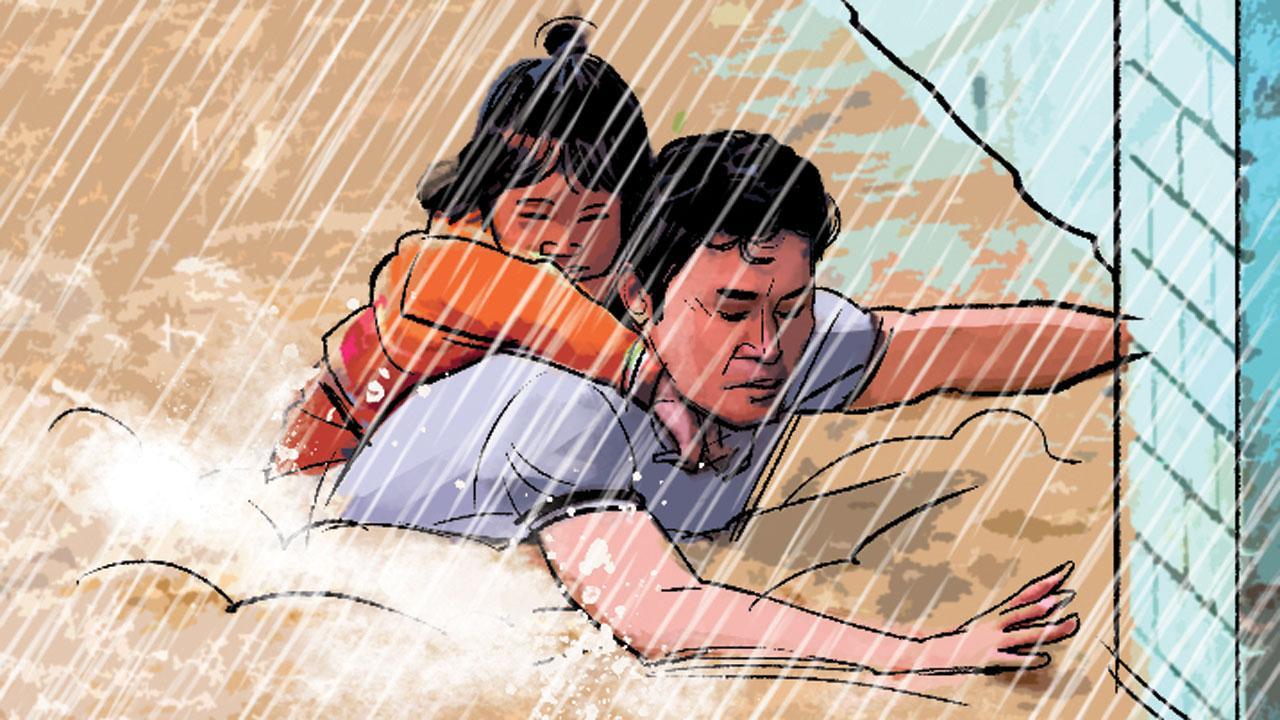The ruling party was quick to call this a Communist-government made disaster, as if it is not a disaster that we all live within

Illustration/Uday Mohite
![]() The rain was India’s language of abundance. The monsoon meant romance, fertility, relief from the heat, a new beginning, the promise of plenitude for the desiring body with its many hungers. Meghadootam to barahmasis, thumris and film songs—the rain gives us metaphors and memories affirming that we are Nature’s subjects.
The rain was India’s language of abundance. The monsoon meant romance, fertility, relief from the heat, a new beginning, the promise of plenitude for the desiring body with its many hungers. Meghadootam to barahmasis, thumris and film songs—the rain gives us metaphors and memories affirming that we are Nature’s subjects.
ADVERTISEMENT
“Water has memory. It remembers the path it used to once flow along” said Dr K Soman, to The News Minute, while analysing the Wayanad landslide which has left over 300 dead. The landslide itself had natural causes, explained the geologist. But its devastation was human-made—starting with British tea plantations that levelled natural gullies through which water once flowed, followed by unmoderated development in an area with a history of landslide, which made it unfit for human habitation.
The ruling party was quick to call this a Communist-government made disaster, as if it is not a disaster that we all live within. Our delusional relationship with power, human hubris, makes us both, callous and foolish. In architecture, an extravagant building made for no purpose but the owner’saesthetic vanity, is called a folly. In a system devoted to power, not life, a mammoth pursuit of scale has turned our world itself into a folly. It is built to house egoes, not lives.
Three students, aspiring to the civil services died in a flooded basement, in Delhi’s Rajinder Nagar, a hub of coaching centres for UPSC aspirants. Rau’s Coaching Circle, the institute where the tragedy occurred, was the first of its kind. It was founded by S Rau in 1953, soon after Independence, and coach UPSC aspirants in political science, in a room at the Hotel Palace Heights in Connaught Place. It’s intensive process of small batches with direct teacher-student engagement meant a high-success rate for its students, acquiring the status of a brand.
In 1980, Rau’s was incorporated. The reins shifted to VedPrakash Gupta who focused on expansion. In 2009, his son-in-law Abhishek Gupta, became the CEO, aiming to make Rau’s a leader in a market crowded by many competitors. Gupta, someone said, was “focused on bringing more facilities to the digital medium.” Students who witnessed the deaths claimed that acess to the building is controlled througha biometric system. So, without electricity—as when it was turned off in the flooding—those inside have no way to exit. Oh, Digital Kafkaesque India. Fast to cook and shit to eat.
Did the rain that killed those students? Or this bizarre illusion of progress disconnected from reality? One million people competing for one thousand jobs. A growing privatisation of education, not more schools, universities, jobs; not cultural shifts that give dignity and value to all kinds of work. A tidal wave of precarity and desperation, is met only by empty ideas of scale as success—more buildings, more intake, more money, oh and make it digital. That which cannot be scaled up is meaningless. They who do not live in the world of scale are nothing. Basic necessities are framed as demands for market supply, not needs a compassionate governance should tend to. Like water people too have nowhere to go. If our relationship with the world is so abusive, is it any surprise that romantic rain is breaking up with us? We may forget our place in the world, but water, as it keeps reminding us, has memory.
Paromita Vohra is an award-winning Mumbai-based filmmaker, writer and curator working with fiction and non-fiction. Reach her at [email protected]
 Subscribe today by clicking the link and stay updated with the latest news!" Click here!
Subscribe today by clicking the link and stay updated with the latest news!" Click here!







